Patriarch Kirill © Kremlin.ru
“Then Jesus said unto His disciples, ‘Verily I say to you, it is extremely difficult for a rich man to enter into the kingdom of heaven. And again I say unto you, it is easier for a camel to go through the eye of a needle, than for a rich man to enter into the kingdom of God’.” (St. Matthew Chapter 19, verse 24, of my Oxford University Press Bible, printed in 1860 and in such a tiny typeface that I need a magnifying glass just to read it). It’s a well-known quote from Jesus, supposedly spoken not long before his arrest and execution, when he was advising a rich young man to give away his wealth and become one of his – Jesus’, that is – followers, if he wanted to get into Heaven. Needless to say, the young man was very disappointed with this advice and, according to the Christian Bible, “went away sorrowful, for he had great possessions.” It’s doubtful if he had as many, in comparable terms, as today’s Russian Patriarch, Kirill I, leader of the Russian Orthodox Church. If Kirill had any problems getting his camel through the eye of a needle, he would only have to telephone his close pal, Vladimir Putin, who would no doubt send troops along to blast a larger hole through the needle and probably to slaughter and carve up the camel to punish it for being difficult. In fact, I think it could be argued that Kirill is not much of a good example of Christian living to encourage others to emulate him, although many might envy him his great wealth and his luxurious dacha next door to Putin’s beside the Black Sea, along with his many, many other homes and possessions. His birth name is Vladimir Gundjaev and people often refer to him and his mighty mentor as “the two Vladimirs of St. Petersburg”.
We could look at what the Qur’an has to say about wealth, too. “Zakat” – the giving of alms by the rich to the poor – is one of Islam’s “Five Pillars”, reducing the gap between rich and poor, but also reducing the need for usury, which is seen as a sin. The Prophet Muhammad stated that a man’s wealth would not be diminished by Zakat, because it would lead to Allah rewarding his generosity, purifying the souls of rich people by making them less stingy and mean but also purifying the souls of the poor, who might otherwise be envious and grow to hate their richer neighbours.

Note: no camels were involved in this statement. According to the Qur’an (57:10) “Those who spend in charity will be richly rewarded.” Later in the same chapter. the Qur’an says: “Verily, those who give Sadaqat, men and women, and lend to Allah a goodly loan, it shall be increased manifold, and theirs shall be an honourable good reward.” That means Paradise, of course; up to a point, it seems you can buy your own ticket. So, looking at the world’s great religions, they are unanimously opposed to people building up wealth for themselves and very much in favour of being generous towards those who are less well-off. We must assume, I guess, that Kirill has read his Bible (perhaps not the Qur’an) so he must know that wealth is not normally a route to Heaven, although it is, of course, a route to luxury and comfort, which is, perhaps, what he wants.
Kirill, like Putin, is unlikely to pay much heed to the views of Americans, but the US Commission on International Religious Freedom, an independent and bipartisan body, set up to advise the US Congress and the Federal Government on issues involving freedom of religion, has warned that “there could be egregious religious freedom violations if Russia is successful in taking over Ukraine.” Kirill, on the other hand, has described Putin’s presidency as “a miracle of god”, and has said that Putin has corrected Russia’s “historically wrong path,” holding special prayer sessions to mark Putin’s election. Kirill has also made changes to the way in which the Church is run, not all of them popular. Provincial clergy claim he has bureaucratized it, too, whilst severely increasing church taxes. Kirill’s position has come under particular criticism from Dmitry Sverdlov, a former priest who fell out with his church after Kirill’s tough line with the Pussy Riot all-girl punk group for staging a protest song inside the Cathedral.

The three members performed a number in the most sacred part of Moscow’s Christ the Saviour Cathedral, with words that included a call for the Virgin Mary to “chase Putin out”. They were arrested and charged with hooliganism, for which they were sentenced to two years in prison. Kirill seems to have strong views about women generally and described the idea of Western churches allowing women into the priesthood as a sign of “moral degradation”. On the other hand, his taxation of the churches under his overall administration is proving very difficult for churches in poor areas. “And nobody knows where the money goes,” Sverdlov says. It’s not the only thing Sverdlov has said in criticism of the Russian Orthodox Church’s top man. “He was skiing in the Alps long before the current political elite ever set foot outside Russia,” he told The Moscow Times, although Kirill later claimed that his experience in the West was what convinced him that Russia’s way was best. Even so, the Moscow Times reported a different side of the man. “He earned the reputation of a liberal pseudo-Catholic,” the article says. “He was a zapadnik (pro-Westerner) to them,” according to church expert Ksenia Luchenko. Sverdlov agreed: “The traditionalists inside the Orthodox church do not tolerate any ties with Western Christians. They saw him as a traitor.” As for the suffering Ukrainians, according to Kirill they don’t exist. “There are no Ukrainians,” he assured a congregation, “only peoples of Holy Russia.” He’s clearly no diplomat, then, nor much of a geographer.
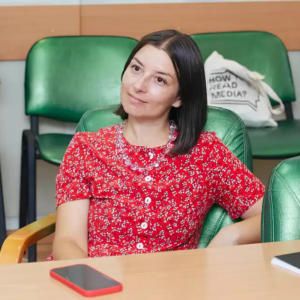
TO THOSE WHO HAVE A LOT, MORE WILL BE GIVEN
One thing is certain: Kirill is a very rich man. It’s been estimated that the assets he controls are worth $1.5-billion (€1.4-billion) but two years after this was published, researchers at Moskovskiye Novosti reckoned that Kirill’s wealth could be as much as $4-billion (€3.8-billion). He sees the Russian church’s wealth as a sign that it has God’s favour (presumably he thinks he has, too). He made the comparison with Roman Catholic Spain, whose most luxurious properties are being snapped up by Russian oligarchs. Many churchgoers in Ukraine are worried that Putin’s territorial kleptocracy, eagerly supported by Kirill, will diminish their own churches. It was in 2018 that the Ecumenical Patriarch of Constantinople, the theoretical leader of the world’s 300-million Orthodox followers, recognised the Ukrainian Orthodox Church as independent, which would mean it no longer falls within Kirill’s remit. But, as we know, Kirill denies the existence of Ukraine and Ukrainians. He also condemns “a world of excess consumption”, which seems ironic.
The principle of a “holy war” died out centuries ago when the Crusaders gave up trying to recapture the Holy Land, but Kirill believes that Russia’s war in Ukraine is not only justified but that it’s not really a war at all. It is a policing operation, apparently, to correct those Nazi Ukrainians and restore order. Kirill would not want anything to threaten his wealth and position, so the fact that the European Commission proposed for the first time in its existence to impose sanctions on a religious authority – Kirill and his church – must have disturbed him a little.
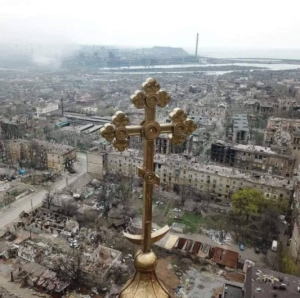
The plan was blocked by Putin’s pal, Viktor Orbán, Prime Minister of Hungary, who claimed it was an attack on freedom of religion, although Orbán does seem to enjoy thwarting EU plans generally. Kirill had been listed in the sixth package of punitive measures that Brussels had put forward in response, not only to the unjustified war but to Patriarch Kirill’s comments, including: “We do not want to fight anyone. Russia has not attacked anyone.” The former inhabitants of such places as Kharkov and Mariupol might not see it that way. But Kirill went further. “It is astonishing that a great and powerful country has never attacked anyone, but only defended its borders. May God grant that by the end of this century, our country will be like this: strong, powerful and at the same time loved by God,” he said. And what would God have to say about that? According to Proverbs, Chapter 6, verses 16 to 19: “These six things doth the Lord hate, yea seven are an abomination unto him: a proud look, a lying tongue, and hands that shed innocent blood, an heart that deviseth wicked imaginations, feet that be swift in running to mischief, a false witness that speaketh lies, and he that soweth discord among brethren.” On the face of it, the only one of those that Kirill seems not to have committed is “running with swift feet unto mischief.” His days of running swiftly in any direction would appear to be largely over. But there again, with a nice dacha by the Black Sea and a luxury apartment in a posh part of Moscow, as well as a villa in Zurich, why would he need to run, and where to? In any case, the Bible is quite firm in its condemnation of liars. The Qur’an doesn’t like them, either: “O you who believe! Be afraid of Allah, and be with those who are true (in word and deeds).
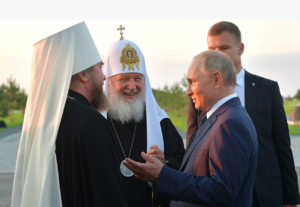
It’s worth looking at where Kirill’s immense wealth originates; after all, church pastors are not famous for earning a lot of money. Those I’ve known have tended to walk about in tatty, dusty clothes and in worn-out shoes. According to the Russian newspapers Kommersant and Moskovskij Komsomolets, Kirill profiteered by abusing the privilege of running the duty-free importation of cigarettes, granted to the Orthodox Church in the 1990s. It earned Kirill the nickname “Tobacco Metropolitan”. A Metropolitan is a senior rank in both the Orthodox and Roman Catholic faith, being a short form for “Metropolitan Bishop”, meaning the bishop of a metropolis or city. Roman Catholics and Protestants normally shorten it to “bishop”, but in the Orthodox Church, it gets shortened to “metropolitan”. In Orthodoxy, the title represents a very senior position. Kirill has come in for severe criticism from other senior figures in the Orthodox church, such as Bartholomew 1 of Constantinople, the spiritual leader of Eastern Orthodox Christians around the world. He condemned Kirill’s vocal support for the invasion of Ukraine, saying it risked damaging the prestige of the whole of Orthodoxy. Kirill has referred to Russia’s opponents in Ukraine (in other words the Ukrainians) as “evil forces”, which is hard to equate with the women and children fleeing their bombed and shelled homes to seek asylum abroad. Pope Francis has held long conversations with Kirill using the Zoom network to try to persuade him to advocate peace, but without success.
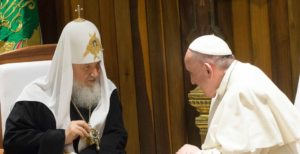
Kirill used the call simply to justify Putin’s invasion. The Pope was interviewed afterwards by the Italian newspaper Corriere della Sera, and he spoke about Kirill’s long rambling vindication of Putin’s aggression. “After 20 minutes of listening to all his justifications for the war,” the Pope said, he told Kirill: ‘I don’t understand any of this. Brother, we aren’t politicians. We can’t speak the language of politics, but of Jesus.” Kirill, it seems, either doesn’t understand that idea, doesn’t agree with it, or sees Putin as being equivalent in status to God. As for Pope Francis, he added that: “We have to find our way to peace and stop the shooting. The patriarch can’t be Putin’s messenger”. He seems to act as if he is, however. At a church service for the armed forces Kirill said: “I want to say again and again: we are a peace-loving country and a very peace-loving, long-suffering people who suffered from wars like few other European nations. We have no desire for war or for doing something that could harm others. But we have been so educated by our entire history that we love our Fatherland and will be ready to defend it in the way that only Russians can defend their country.” Despite these sentiments, he refuses to talk about peace with Pope Francis, other than to defend Russia’s aggression. Russian missiles have now destroyed the Palace of Culture in Kharkiv, injuring eight people and destroying its treasures. Ukrainian President Volodymyr Zelensky said it showed that the Russians have now: “identified culture, education and humanity as their enemies. What is in the minds of people who choose such targets?” Zelensky asked. “Absolute evil, absolute stupidity.”
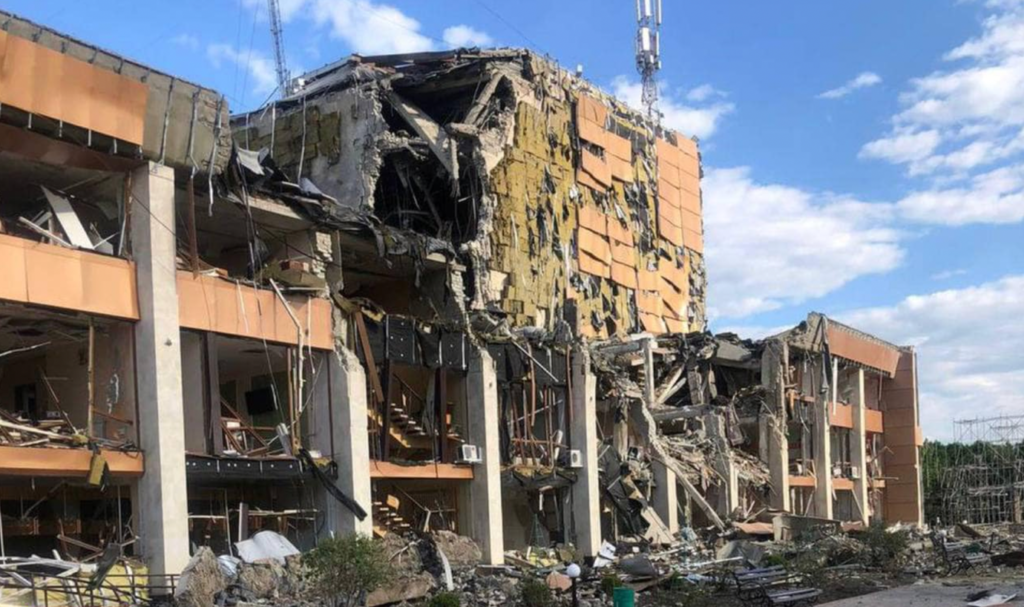
PILLAGE AND PROSPER
As for his reported wealth, Patriarch Kirill’s Department for External Church Relations became Russia’s largest supplier of foreign cigarettes. It was extremely profitable, being entitled to receive 10% of the profits, and with a US embargo in place over Iraq, the Church cleaned up, but it’s by no means certain that Kirill was guilty of embezzlement or profiteering, despite the rumours. American diplomat Nathaniel Davis said that he thinks it more likely that the vast sums made this way were used: “for urgent, pressing Church expenses”. Could these have included Kirill’s purchase of a house in the canton of Zurich in Switzerland? It’s the perfect place from which to pursue his love of skiing, which he developed in childhood. Kirill seems to have a taste for luxury, although this also he denies. It came to light when the Russian Orthodox Church airbrushed a very expensive watch from Kirill’s wrist in a photograph for its website. However, they omitted to airbrush out the reflection of the watch on the shiny surface of a table. The Church later apologised for what it called a “foolish mistake” and has promised to punish the person responsible (the photo editor, not Kirill, of course), arguing that the Church never alters its official photographs. Except in this case, it seems. The incident earned Kirill the nickname: “the Bishop of Bling”.
The watch itself, a Breguet with a white gold case and a crocodile-skin strap, is thought to be worth more than €30,000 ($32,000). Kirill claims it was a gift from a grateful parishioner but that he seldom wears it, preferring to keep it in its box. This has failed to convince some of the faithful, although it means we may not see it on his wrist in public in future. He seems to attract lavish gifts, including a luxury apartment in central Moscow filled with very costly furniture and, it’s claimed, he also owns (or at least has the use of) two Cadillacs. Incidentally, he does seem to have toned down his taste for costly wristwear. He has since been snapped wearing a Ulysse Nardin Dual Time 42 mm model, said to be valued at just $16,000 (just over €15,000). That’s little more than half the value of the Breguet. Modest stuff.
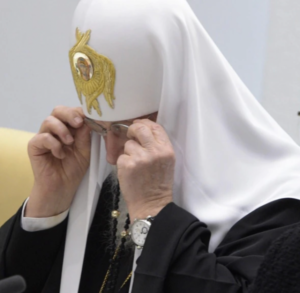
Many of Kirill’s critics don’t agree that the profits from the cigarette trade were all put to good use, either, although the sanctions that were proposed by the European Commission have also been heavily criticised. The spokesman for the Moscow Patriarchate, Vladimir Legoyda, said that Kirill came from a family that had been persecuted for its faith under Communism. “Only those who do not know the history of our Church can believe that they can intimidate the clergy and its faithful by including them in some lists.” Kirill still denies the commonly held belief that he was once a KGB informant, although to be honest, if members of his family were being targeted by the KGB, he may not have had much choice. Even so, at an ecumenical assembly in Nairobi in 1975, Kirill strongly criticised a rebel pastor, Gleb Yakunin, who had written a letter criticising the way in which believers were, he said, being persecuted by the Communist state because of its commitment to atheism. The Soviet Union’s clampdown on Orthodoxy had actually been reversed by Joseph Stalin in September 1943, when he ended an 18-year prohibition on religion. Stalin told three metropolitans he’d invited to meet him in his Kremlin office that they should appoint a Patriarch (Kirill’s predecessor) and they were even authorised to use aeroplanes to bring bishops to Moscow to accelerate the selection process. In response to Yakunin’s accusation of official and enforced atheism, Kirill wrote a letter in which he denied that believers’ rights were being violated. It seems a strange thing to have done in the light of his more recent statements, but he was correct.
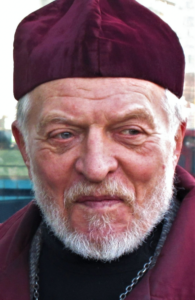
St. Petersburg was also Putin’s hub of operations as a KGB (later FSB) agent, in which rôle he watched the looting of the Baltic Sea fleet, seemingly without comment. The only person to speak out against it, according to Catherine Belton in her excellent book, “Putin’s People”, was the city mayor, Anatoly Sobchek. According to Belton, Sobchek wrote in an article that: “The prosecutors, the FSB and the policemen who took part in this should be charged with abusing their position and for causing the country enormous loss.” Four months later, Sobchek died of a heart attack at the age of 62. Another man who tried to retain state control over the various assets in St. Petersburg was Mikhail Manevich, head of the city’s Property Department. He believed that the KGB and their gangster associates were pillaging the city’s wealth. He was shot dead by a sniper on his way to work one morning. According to Belton’s book, Putin and his KGB pals used the organised crime groups active in the city to help control the public and to maintain order in the prisons. They certainly didn’t encourage disagreement.
LAYING UP TREASURES UPON EARTH
Meanwhile, Kirill continues to amass his treasures on Earth. This is not the way recommended in the Gospel of St. Matthew in the Bible. In Chapter 6, verses 19 and 20, it says: “Lay not up for yourselves treasures upon Earth, where moth and rust doth corrupt and where thieves break through and steal, but lay up for yourselves treasures in Heaven, where neither rust nor moth doth corrupt and where thieves do not break through, nor steal.” On the face of it, Kirill would seem to have got that advice back to front. After all, he’s not short of houses. His main working residence is at 5, Chisty Pereulok in Moscow, once owned by Russian nobility before the revolution. He also has the use of a palace in Peredelkino, which belongs to the Church. Another of his many homes is a house in Gelendzhik, which locals refer to as a “palace” because of its palatial style. In the 1990s he became the owner of a 5-room apartment, a gift from President Yeltsin, in the House on the Embankment, with a view of the great Cathedral of Christ the Saviour.
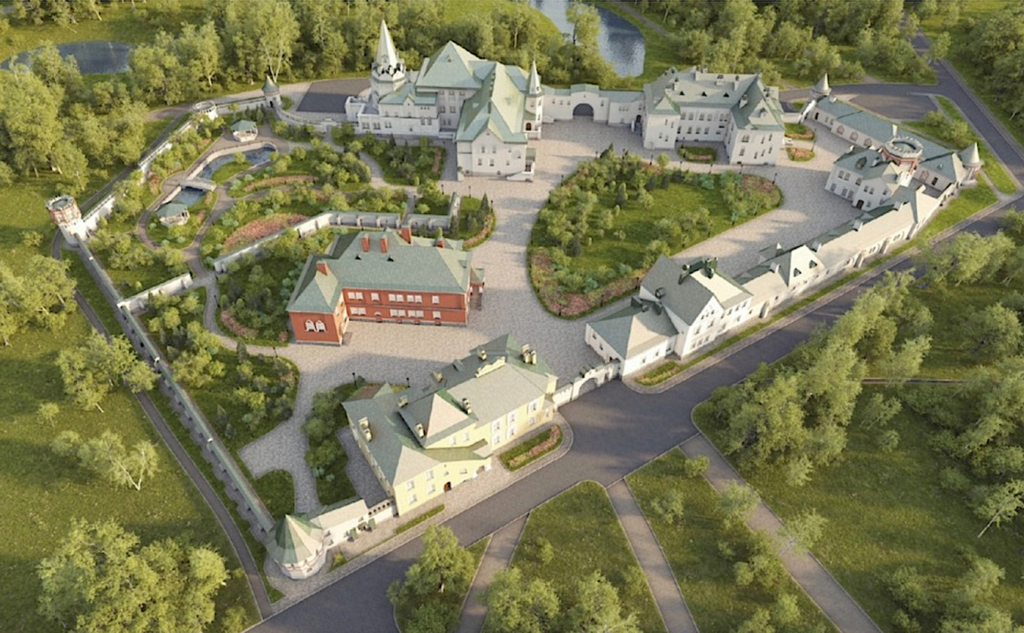
It’s estimated to be worth 90-million roubles (€1.5-million), although he doesn’t actually own it. He does own a house that was an illegal construction near Divnomorskoye, however, hidden away among pine trees and mountains on the Black Sea coast, probably worth (according to experts) around €34-million. His nearest neighbour is Vladimir Putin (surprise, surprise) and anyone trespassing too near may be seized upon by FSB agents who patrol the grounds. This is not a house into which to welcome parishioners wanting clarity on some ineffable theocratic point of faith. They’re not allowed anywhere near this religious palace. Locals are obliged to take the long way around, along a busy road (one was recently killed by a vehicle while walking there). Kirill gets annoyed if people mention his vast wealth and luxurious lifestyle, saying it’s all lies, intended to distress the faithful. Now the Kremlin is to lavish €43-million on restoring a tsarist-era housing complex near St. Petersburg for Kirill’s exclusive use.
The EU proposed imposing sanctions because of Kirill’s unwavering support for Putin’s aggression and Kirill’s endless lies about the war, which have not gone down well in Roman Catholic circles. Adalberto Minardi, an Italian monk from San Gimignano supported the idea of sanctioning Kirill: “Because the Patriarch’s actions since the beginning of the war are seen as an unconditional supporting of Putin’s war,” making him more of a political figure than a cleric. “The Patriarch does not use the term ‘war’ but he speaks about the defence of the homeland, about the homeland in danger in front of an aggression of forces that dominate the world, he speaks about the values that must be defended. This is in line with Kirill’s discourse in recent years but read at this time it is clearly (in line) of the Russian president’s arguments.” It would seem that Kirill is angry because almost a third of the Orthodox churches under his theoretical control are in Ukraine and he wants their wealth (or what’s left of it after the Russian invasion) for his own coffers. If you want to know the reasons why, you can probably do no better than follow the advice first spoken by a character in the film about the Watergate scandal, ‘All the President’s Men’: “follow the money”.
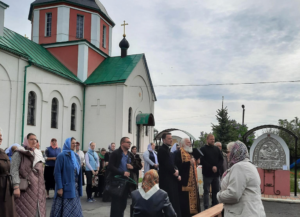
Now the Ukrainian Orthodox Church (UOC) has formally separated itself from Kirill, an act which has been seen by some religious scholars as “a huge blow to Putin”.
More than a hundred of Ukraine’s churches had previously rejected the UOC in favour of the Orthodox Church Ukraine (OCU) – sorry, but the names are confusing – which in turn had split from Moscow in 2019. Kirill said he “understood how the Ukrainian Orthodox Church is suffering today”, but blamed “spirits of malice” for their concern, not the Russian armour pounding their towns and homes and slaughtering their families. Fox News quoted Rebekah Koffler, a former Defense Intelligence Agency (DIA) officer, who explained that Putin has weaponised the Russian Orthodox Church as “a geopolitical tool”. She went on: “The idea of Putin unifying the Russian world, including Ukraine and other post-Soviet states, hinges on the idea that Russia is the centre of Christianity and the centre of the unique Eurasian civilisation that the Russians believe is exceptional just like the Americans think America is exceptional. Once the church splits, it takes the whole divinity idea out of it.” Koffler says this latest development is more significant than it may appear from the outside. “Regardless of whose side you’re on, even if you buy into Putin’s explanation for why he’s doing it, you can’t, as a spiritual person, condone civilian deaths.” Koffler believes this new split undermines Putin’s main argument. “The split punches a hole in Putin’s narrative that the Russians and Ukrainians are spiritually and ethnically one people and therefore Ukraine should not exist as a separate country.”
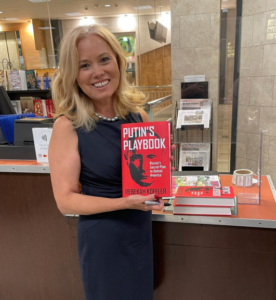
The orthodox faithful seem to be achieving what the EU was hoping to do by adding Kirill’s name to a list of politicians and businessmen who have supported Putin’s war. EU diplomats tried to reach agreement on the measures but failed to overcome Hungary’s opposition. Kirill, listed under his birth name, Vladimir Gundjaev, was on the list alongside former Russian gymnast Alina Kabaeva, said to be Putin’s girlfriend, and several dozen military officers accused of murdering and torturing civilians in the town of Bucha. The list includes Azatbek Omurbekov, a commander in the 35th army, nicknamed the “butcher of Bucha” for his responsibility for murders, rapes and torture. The sanctions will mean for them a travel ban and the seizure of any assets in the EU itself, although Kirill is no longer among them, of course. According to BNE Intellinews, however, Kirill is not only a billionaire but “a thoroughly corrupt billionaire”. One with poor judgement, too, it would appear. He has described Putin’s illegal invasion as part of a ‘metaphysical’ battle against Western ideology, which he said had been forced on other nations through a vanguard of ‘gay parades’, which he clearly sees as being more immoral than the accrual of vast wealth for himself by whatever means, or, indeed, the slaughter of innocent civilians.
So egregious has been his appropriation of homes, expensive jewellery and personal wealth whilst lying about the war that there have been calls to expel the Russian Orthodox Church from the World Council of Churches.

The EU has so far frozen more than €10-billion in physical assets and €20-billion in the bank accounts of Russian oligarchs known to be playing a part in Putin’s war by helping to fund it The EU feared that some of this could be shifted to a safe haven, unless those holding it could be convicted of trying to evade sanctions or some other crimes, so it has adopted a new law, which has received unanimous agreement by member state governments, making it easier to confiscate criminal assets, as well as simplifying the prosecution of lawyers, bankers or other professionals engaged in getting around the measures imposed. According to Commission estimates, criminal gangs in the EU make some €139-billion a year, of which only some 2% become frozen and only a half of that amount gets confiscated. It only required one EU leader to prevent the imposition of sanctions on Kirill. Hungary’s Viktor Orbán, often a thorn in the side of EU policy-makers, blocked the move, saying it’s a matter of religious freedom. Four EU countries are urging the Union to use frozen Russian financial assets to help pay for the reconstruction of Ukraine.
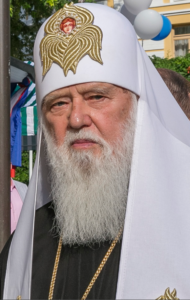
The Kremlin is sticking to its line that it had to invade Ukraine because of attacks on the country’s Russian-speaking residents by “representatives of Nazi groups”, as well as to stop NATO’s eastwards expansion. Since Putin’s war has encouraged both Finland and Sweden to apply for membership after decades of neutrality, it’s a tactic that would seem to have backfired. The World Council of Churches, which represents Christian churches around the world, has twice written to Kirill, urging him to help seek a peaceful solution. He seems not to be listening to the Council, nor to a Russian Orthodox church in Amsterdam, which split from the Moscow patriarchate because of Kirill’s pro-war stance. The Russian Orthodox Church has criticised Pope Francis for urging Kirill not to become “Putin’s altar boy”, too. Kirill claimed that the Patriarch of the Ukrainian Orthodox Church had written to him asking forgiveness, but like many of Kirill’s public comments, it was a lie. The Patriarch of Ukraine, Philaret, has stated that there was no such letter and no plea for forgiveness. Nor will there be, says the euvdisinfo.eu website. It’s not the only lie about the war that it has highlighted. As for Kirill’s warmongering language, he won’t now face travel bans and a freezing of his assets, which would have meant joining the 1,093 individuals, including Putin, his government, and a number of oligarchs in being subjected to various forms of punishment.
THE BLAME GAME
According to the DevDiscourse website, Kirill has consistently echoed Putin’s unfounded claims that Ukraine’s armed forces (Putin says they’re Nazis) were engaged in exterminating Russian loyalists in the breakaway eastern enclave of Donbas, which has been held by Moscow supporters since 2014. There has been fighting between the separatists and Ukrainian forces and that has resulted in deaths on both sides, but however regrettable, that doesn’t seem surprising under the circumstances. Kirill also denied that Russia had launched the invasion, despite satellite images of Putin’s advance. It’s interesting to wonder why, but research suggests that Russian church-goers are more nationalistic than most other people. Kirill simply reflects that fact, even if it means turning into Putin’s mouthpiece. Kirill’s supporters have said his attitude is rooted in his suffering for his beliefs under Stalin, but even before World War II ended, Joseph Stalin allowed the Russian Orthodox Church to open its own theological schools in order to prepare young people to lead more Christian lives and to do Christian service. Those were major events that shaped the path of development for the Moscow church. Remember, Kirill was born in November 1946, long after Stalin launched his more inclusive set of policies for the church. Kirill has never admitted to being a nationalist but he has often spoken of Russia’s “great mission” and its “God-given destiny”.

Kirill’s claim that “Russia never attacked anybody” is not born out by history. We start in 907 AD, with the Rus’Byzantine war, which Russian forces won. Greek sources don’t mention the war, although it clearly must have affected them. There were many more down the years, with Russia as the aggressor, some of which Russia won and some of which it lost. Between 1570 and 1572, Ivan the Terrible fought the Crimean Khanate, then between 1580 and 1762 (a very long war indeed), Russia invaded and eventually conquered Siberia, bringing it into the Russian fold. Once again, Russia was the attacker. The Ainu people, who were affected in this war in much the same way that native Americans suffered at the hands of white settlers, have always said that they’re really natives of the Kuril Islands, now part of Russia’s Sakhalin Oblast, which means that both the Russians and the Japanese have been invaders. In 2004, one small Ainu community wrote to Putin, pointing out the unfair treatment they had received and urging him to recognise this aggression, especially from the Japanese, but also from Tsarist forces and from the Soviets. Putin turned them down. History, it seems, is not his strong point, and nor is compassion. It’s by no means certain that Russia could hold Ukraine in the face of popular resistance, even if it wins the war. The Economist magazine quotes American army doctrine that says: “to face down an insurgency – in this case one backed by NATO – occupiers need 20 to 25 soldiers for every thousand people; Russia has little over four.” It’s rumoured, however, that Putin is considering the reintroduction of mass conscription, even banning men of military age from leaving the country. Indeed, conscription may have already started by the time you read this.
The Russian Orthodox Church has cut its ties with the Church leadership in Istanbul, the Constantinople Patriarchate, which is traditionally regarded as the headquarters of the Orthodox faith. The Russian patriarchate claims 150-million adherents, which is more than half of all Orthodox worshippers, but Moscow (and Kirill, of course) did not agree with Constantinople’s decision to recognise the independence of Ukrainian Orthodox worshippers. Followers of the Orthodox faith in Ukraine started to demand independence after Russia annexed Crimea and its separatist supporters seized territory in the east of the country.
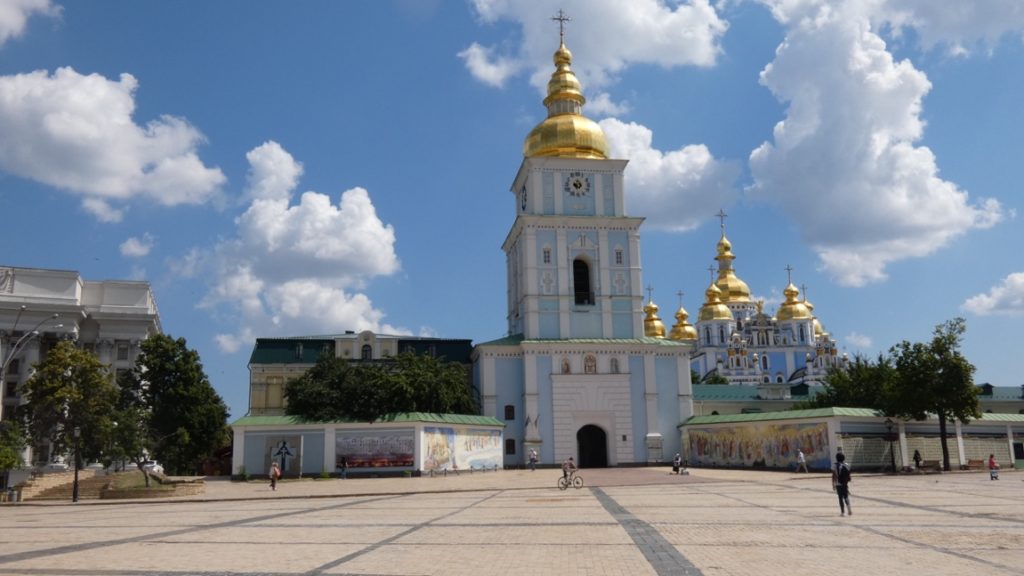
Only Moscow recognises the supposed separatist states as not being part of Ukraine, but the Russian Orthodox church has accused Ukrainian nationalists of attacking its churches and their followers. It could even be true: Ukrainian ultra-nationalists are not warm-hearted and kindly souls, by and large. Nationalists seldom are. Kirill’s insistence on taking back control, however, is more likely to be rooted in their wealth. In Paris, Archbishop John of Dubna heads a Russian Orthodox parish in Europe, but he declared solidarity with Ukraine and, in a letter to Kirill, denounced the war as “monstrous and senseless”, also condemning Kirill’s support for it. In Amsterdam, four priests of St. Nicholas signed a petition to Kirill, urging him to help bring the war to an end, but Kirill defended the war, despite a petition from Orthodox priests in Russia to put an end to the killing. The head of the Ukrainian Orthodox Church, which is loyal to Moscow, appealed directly to Putin for “an immediate end to the fratricidal war”. Later, a large “Z” was painted on the church gates, a symbol supportive of Russia’s heedless violence and clearly intended as a warning. The parish church received a number of threats, eventually closing its doors completely. I’m not sure how the Moscow Orthodox Church can celebrate the loss of parishioners like that. Kirill is often pictured wafting his censer of incense before his followers, but some may perhaps detect a whiff of sulphur instead.

